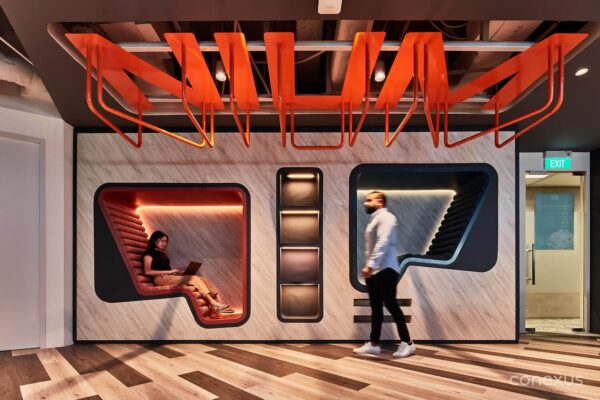
Gen Z Has Been Labeled the Most Annoying Group to Work With but They Also Face Ageism at Work

Gen Z is having a rough moment at work. According to a just released survey Gen Z, known as Zoomers, are considered the most annoying group to work in an office (even a remote one.) Gen Z—defined as those born between 1997 and 2012 making them currently ages 12 to 27 years old—were ranked as the worst coworkers, with 29% of the respondents in the nationwide survey putting them in this group.
“Every generation brings its own set of habits and attitudes to the workplace,” LLC.org, the group that conducted the survey, expert Sam Taylor said in a press release. “With Gen Z, however, the frustrations seem to stem from their approach to work-life balance, communication style and a perceived sense of entitlement.”
The survey was conducted September to October 2022, using a pool of 1,005 full-time employees in the U.S evenly split by gender, with 50% male and 50% female respondents, at an average age of 38. Industries represented in the survey included health, tech/IT, education, finance, manufacturing/wholesale, retail, business/professional services/sales, government/politics, food industry, transportation, arts/entertainment, nonprofit, construction, hospitality, science/aerospace, real estate, legal services, and others.
This is not a great look for Gen Z but they have their own set of troubles besides just being called out for being on their phones constantly (but aren’t we all?).

A recent study from LeanIn and McKinsey & Co. found that Millennial and Gen Z women experience significant ageism in the workplace. Many reported feeling their decisions were frequently questioned due to their age, which contributes to a perception of being undervalued and underestimated.
The study emphasizes that this form of discrimination not only affects confidence but also career progression and job satisfaction. The findings suggest that younger women often face biases that hinder their professional growth, indicating a need for awareness and change in workplace culture.
LeanIn and McKinsey’s research shows that women are less likely than men to be hired for entry-level positions or promoted to managerial roles. This disparity often stems from a lack of sponsors who can help young women secure these important stepping-stone jobs.
Rachel Thomas, co-founder and CEO of LeanIn, notes, “We tend to promote men based on their potential, while women are evaluated on their past achievements.” This creates larger obstacles for young women, making it more challenging for them to advance in their careers.
So how can Gen Z deal with ageism at work?
Build Confidence: Recognize your skills and contributions. Prepare thoroughly for meetings and presentations to assert your expertise.
Seek Mentorship: Find mentors who can guide you and provide support in navigating workplace dynamics. Their experience can help you tackle age-related biases.
Foster Relationships: Build strong connections with colleagues across all age groups. Networking can help dispel stereotypes and create a more inclusive environment.
Communicate Clearly: When your decisions or ideas are questioned, respond confidently with data or examples to back your points. Clear communication can help establish your credibility.
Advocate for Inclusivity: Encourage discussions about age diversity in your workplace. Participate in or initiate programs that promote awareness of ageism and its impact.
Educate Yourself and Others: Stay informed about ageism and its implications. Sharing articles or insights with colleagues can promote understanding and foster a more supportive workplace.
Focus on Skills Development: Continuously enhance your skills through training and professional development. This shows commitment to your career and helps counter ageist perceptions.
Encourage Feedback: Request feedback on your work regularly. Constructive criticism can help you improve and demonstrate that you value growth, countering age-based assumptions.















































